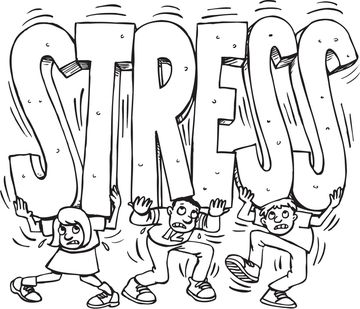Why is everyone talking about stress?
Why is everyone talking about stress?
A friend of mine used to tell me that stress is a challenge striving her to perform better. Another friend who is a working mom of a toddler didn’t realise she was over stressed till she had to be rushed to the emergency! Unreasonably demanding boss, failing relationships, multitasking between work and family and a desire to excel at everything; we are frequently exposed to stressors and each one of us reacts differently to it. But is stress really something you should worry about?
Stress: Is it a disease?
Stress can be defined as the way your body responds when faced with any kind of demand or threat. Some chemicals known as hormones are released when you’re under stress and help you in fighting against the stress. But different individuals react differently to these stressors;
-
It charges you with increased strength and energy to protect yourself and helps you stay focussed and alert.
-
It can also ‘freeze’ your instincts and block your ability to think.
-
It enables you to rise up to face and meet life’s challenges.
Unattended stress is detrimental to health
If you leave your stress unchecked, it can contribute to various health problems including hypertension, heart diseases, obesity and diabetes. The most common stress related problems are;
-
Health problems such as headache, muscular weakness or pain, chest pain, tiredness, altered libido, digestion problems and sleep disorders.
-
Mental disorders such as depression, anxiety, restlessness, inability to concentrate, and irritability.
-
Behavioural disorders such as eating disorders, temper issues, drug addiction, increased alcohol or tobacco use or social withdrawal.
Learn to identify your stress
It is important that you can identify signs to assess that it is time to start ‘stressing’ about the stress. Stress can have cognitive, emotional, physical or behavioural effects on you. Some of the most common signs are;
Cognitive signs: Forgetfulness, lack of focus, inability to judge accurately, negative thinking, anxiousness or restlessness, and persistent worrying.
Physical signs: Body aches and pains, digestive problems, nausea or dizziness, chest pain, increased pulse, and colds.
Emotional symptoms: Feeling lonely all the time, moodiness, irritation, feeling overwhelmed, and depression.
Behavioural signs: Changes in eating habits and sleeping patterns, isolation, not paying attention to responsibilities, or habits born out of nervousness such as nail biting, or pacing.
Help yourself!
Yes, because no one else will. Learn ways to manage your stress to avoid future health problems.
Build your support
Do not isolate yourself. Make a strong network of family and friends. Talk to them, because it gives you a new perspective. Sharing your thoughts also reduces the burden you have been carrying so far.
Check your attitude
Be optimistic. Your outlook and attitude will go a long way in helping you to overcome stress and in accepting the situation. Acceptance of a situation is the first step towards de-stressing yourself.
Take charge of your life
Be in control. Focus. Set a target for yourself. It is important to have confidence in yourself and your abilities to either change the situation or to overcome them in the most simple and positive way. Prepare yourself to face the eventuality. Accept stress as a challenge and emerge as a better person.
Change your lifestyle
Try to take out some relaxation time for yourself, eat healthy, sleep properly and indulge in physical activity. You can take up activities such as yoga, meditation or laughter therapy to alleviate your stress levels. Go for a spa treatment or aromatherapy session to rejuvenate you.
It is important to be aware about yourself. Recognize the tell-tale signs of stress and protect yourself.
Image Source: Google
















